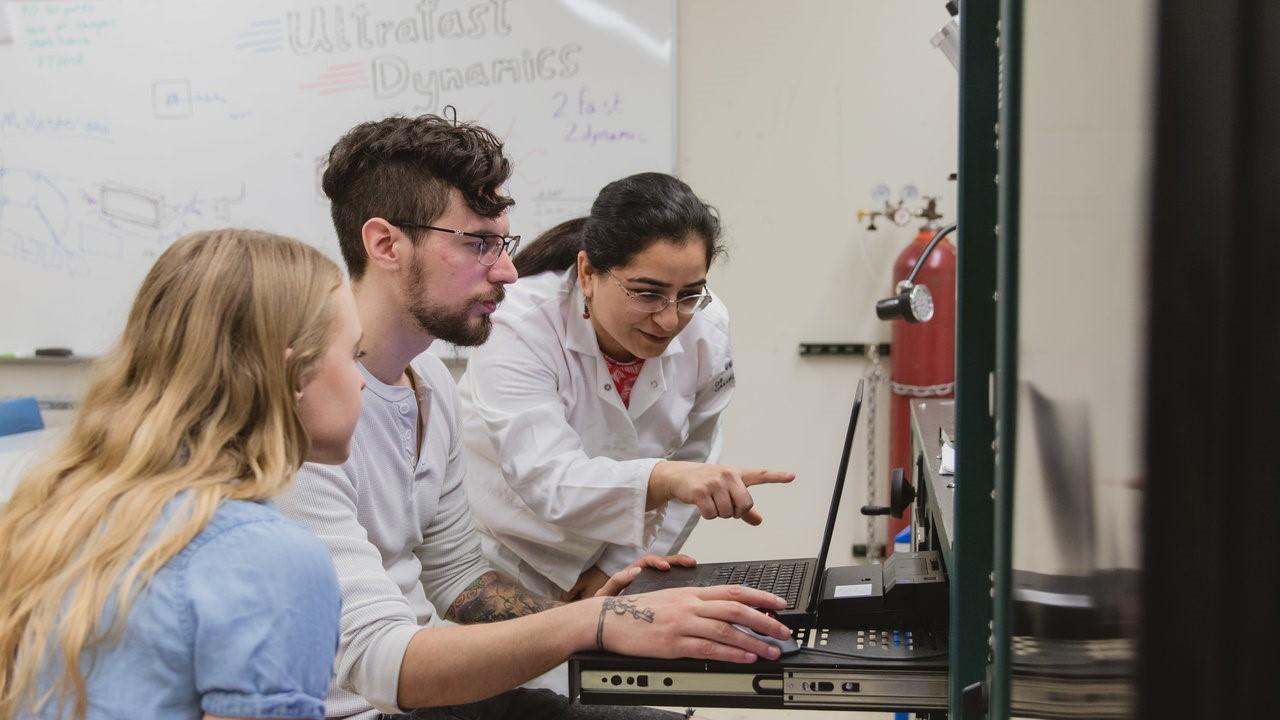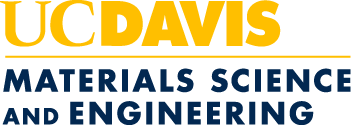
MSE launches nuclear science training program for UC Davis faculty
The Department of Materials Science and Engineering is leading a new nuclear science training program for junior faculty members at UC Davis. The Advancing Scientific Careers to Enhance Nuclear Technologies (ASCENT) is a three-year $450,000 program funded by the Nuclear Regulatory Commission. The goal of this program is to encourage junior faculty in their first four years to expand their research in nuclear science.
ASCENT supports two faculty members in engineering or physical sciences for developing research activities in nuclear science, mentoring graduate students and also provides travel funds to visit national laboratories and attend professional meetings.
In addition, as part of this program, UC Davis will invite distinguished speakers to campus and collaborate with the Designated Emphasis in Nuclear Science program to host an annual research symposium, which will feature the work performed by the faculty members and their graduate students.
“It’s fairly ambitious,” said professor and chair Jeff Gibeling, who is the PI on the grant. “We’re trying to have a presence on campus, as well as trying to grow our faculty’s reputation in the nuclear science community.”
MSE assistant professor Roopali Kukreja and Department of Chemistry assistant professor Jesús Velázquez will be the first faculty members supported by the program.
Kukreja studies methods to manipulate magnetism in nanomaterials at femtosecond (1x10-15 second) timescales. She uses x-rays to better understand the magnetic and electronic properties of materials and how they change when exposed to external stimuli. Her goal is to manipulate these properties for applications in next generation computing devices. She was the first hire after the Department of Materials Science and Engineering’s inception in 2016.
“In this program, I will focus on understanding microscopic effects of radiation damage immediately after impact and correlating them with longer timescales,” she said.
Though he is a chemist by training, Velázquez also studies materials properties. He works to characterize the physiochemical properties of low-dimensional materials like monolayers, bilayers, nanocrystalline thin films and free-standing mesoporous monoliths. He also joined UC Davis in 2016 as a member of the Department of Chemistry.
Over the next year, Kukreja and Velázquez will expand their research into the area of nuclear science, specifically understanding the effects of radiation exposure in nanomaterials, and will also work together to develop a new graduate-level course for the university’s designated emphasis in nuclear science.
As both are in their fourth year, and will no longer be eligible after this year, internal recruitment for the next two years of the ASCENT program is open now. The new faculty members will start on July 1, 2020. Contact Jeff Gibeling at jcgibeling@ucdavis.edu for details.
“UC Davis is an ideal place for this program because of the Crocker Nuclear Laboratory and McClellan Nuclear Research Center on campus that enable our faculty and their students to do fundamental science in this area,” said Gibeling.
